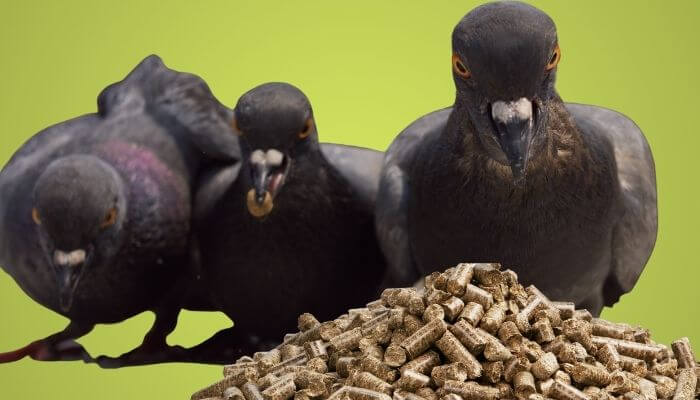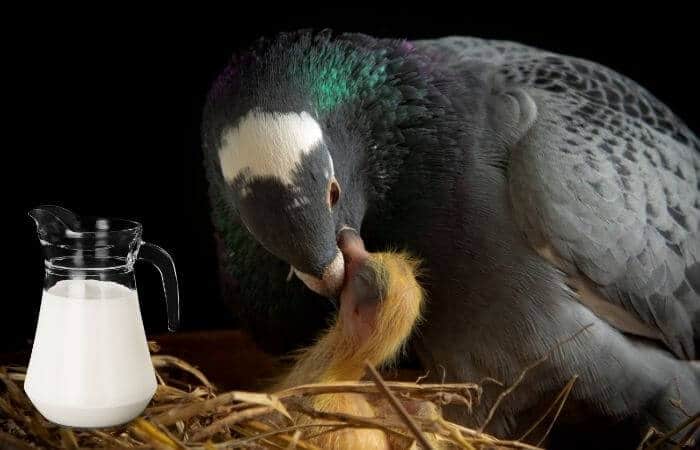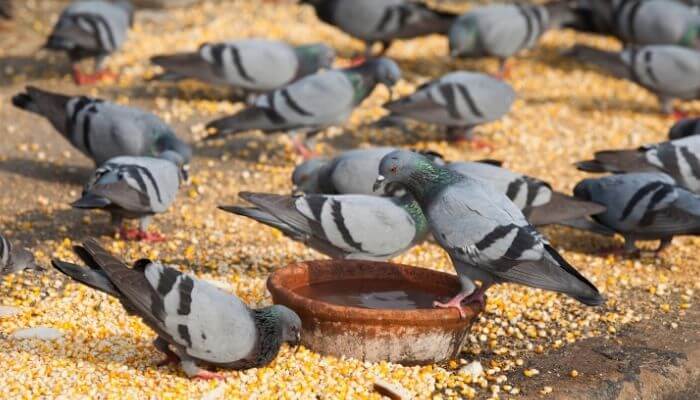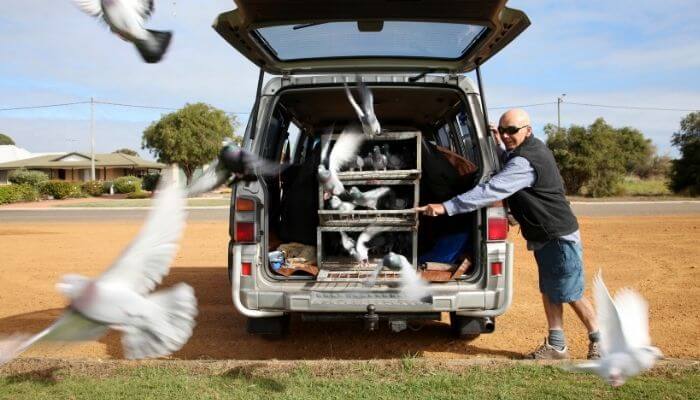Good nutrition helps your pigeon fight illness and disease, as well as bounce back should it get sick.

A majorly important nutrient for pigeons is protein. While all pigeons need protein for good health, it’s especially important for racing pigeons.
As an Amazon Associate I earn a small fee from qualifying purchases made through Amazon links. This helps us run the site – thanks for your support!
15-20% of your pigeon’s diet should be made up of protein. If you need to add protein to your pigeon’s diet some good sources include things like mealworm and well-balanced seed mixes that include high protein seeds such as sunflower seeds.
As your bird’s caretaker, it’s up to you to ensure that your pigeon is getting an adequate amount of protein.
Protein and Crop Milk
To demonstrate how vital protein is to pigeons we only have to look at crop milk.
Pigeons have one of the fastest infantile growth rates in the animal kingdom and a hatchling will double its birth weight in just two days.

This is attributed to the crop milk that the parents produce and feed the babies right after birth.
Crop milk (produced by both female and male pigeons) is made up as follows:
- Water: 70-80%
- Protein: 10-20%
- Fats: 7-12%
- Minerals: 2%
Crop milk enables hatchlings to be weaned after four weeks, after which they need protein as part of their regular solid food diet.
The Important Role of Protein For Pigeons
One of the main jobs of protein in the body is to build and repair tissue, including muscle. That makes it an important part of your pigeon’s diet, particularly after racing.
The right amount of protein will help your bird recover after flight and keep the muscles healthy.
The muscles in your pigeon’s chest are made up of a series of fibres that aid in flight.
Adequate protein supplies ensure that these fibres are healthy and pliable, ensuring fast and effective flight patterns.
During the actual flight, more fat and glycogen are used to support energy reserves. However, protein keeps the muscles healthy, so they are able to perform during flight.
How Much Protein is Needed?
Knowing how much protein your pigeon needs is vital to ensuring that it gets enough on a regular basis. This is especially important for racing pigeons, though all birds need adequate protein for good overall health.
Most pigeons need to consume at least 5g of protein each day to sustain a normal level of activity. If they are doing anything other than a regular activity such as flying, laying eggs or weaning, more protein is needed.

Ideally, winter feed should contain 15% protein and feed when breeding should be at least 20% protein in its constituency. A racing pigeon’s diet should also consist of at least 20% protein.
Protein content should also be increased when your pigeons are molting. More protein is required during this time because protein makes up 80% of a bird’s feather.
Protein is vital but the best way to ensure adequate nutrient intake is to offer a varied diet.
Food Sources of Protein
One of the easiest ways to ensure that your pigeon is getting enough protein, as well as other vital nutrients, is to offer pellets.
These are designed for optimal nutrition and contain a mixture of ingredients that support your bird’s good health.
Most pellet feeds will contain some, all or combinations of the following because of their protein content:
- Beer yeast: 45%
- Vetch: 30%
- Sunflower seed: 28%
- Beans: 26%
- Linseed: 24%
- Peas: 22%
- Rapeseed: 20%
- Hemp seed: 18%
- Wheat: 13%
- Barley: 11.5%
- Corn: 9%
Although not having the highest protein content, peas and wheat are the premier source of feed for your pigeon because as well as the protein, they contain a good proportion of the major nutrients a pigeon needs.

This article was written by our qualified veterinarian Cristina.
This is part of our commitment to providing you with the most trustworthy veterinary advice for your pigeons.
Energy for Racing Pigeons
While the main fuel source for pigeons during a race is glycogen and fat, it pays to keep protein in mind too.
The main reason for this is because protein can take the place of both carbs and fat should their supply be depleted during racing.

Before racing your pigeon, it’s important to be sure it has access to these fuel sources so that it can finish the race without being fatigued.
Also Read: 9 Racing Pigeon Tips
If you have trouble finding the right blend of nutrients for your pigeon, consider mixing your own food to feed it.
This way you can be sure your bird is getting exactly what it needs for effective racing.
Sources:
